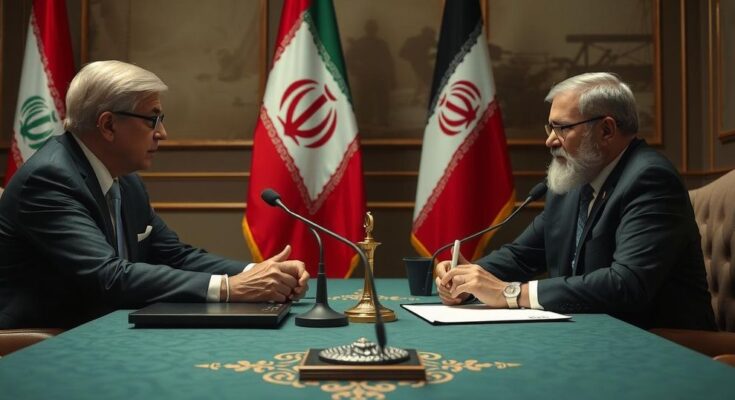U.S. Secretary of State Antony Blinken called on Iraq to address Iranian-backed militias during a visit to Baghdad, highlighting the opportunity to reduce Iran’s influence following the decline of Bashar al-Assad in Syria. Blinken’s remarks underscored U.S. support for Iraqi sovereignty and security while expressing concerns over potential arms transfers and the threat of the Islamic State group within Iraq.
In a significant diplomatic effort, U.S. Secretary of State Antony Blinken urged Iraqi Prime Minister Mohammed Shia al-Sudani to clamp down on Iranian-backed militias operating within Iraq. This request was made during a meeting in Baghdad, where Blinken highlighted the potential opportunity for Iraq to reduce Iranian influence following the diminished state of Iran’s position due to recent developments in Syria, particularly the weakening of Syrian President Bashar al-Assad, a key ally of Tehran.
Blinken emphasized the need for Iraq to assert its sovereignty and reinforce its own stability against external influences, stressing the U.S. commitment to supporting Iraq’s integrity and security. He also expressed concerns over the transfer of Iranian weapons through Iraq to affiliated groups in Syria and mentioned the ongoing threat posed by the Islamic State group, which continues to demand vigilance and counter-measures from the Iraqi government.
Despite acknowledging these challenges, Blinken noted the hope that Iraq could steer clear of further conflict, as the Iraqi government maintains a complex relationship with Iran while simultaneously negotiating the reduction of U.S. troop presence in the region. The U.S. administration has also recently extended waivers allowing Iraq to procure electricity from Iran, which has drawn criticism from certain U.S. lawmakers, reflecting ongoing tensions regarding Iran’s regional influence.
The geopolitical landscape in the Middle East has been notably impacted by the shifting alliances and power dynamics following the 2003 U.S.-led invasion of Iraq, which resulted in the ousting of Saddam Hussein. Iran’s influence in Iraq grew substantially in the subsequent years, particularly through its support for Shiite militias. The recent downfall of Syrian leader Bashar al-Assad has created a new context for U.S. diplomacy in the region, as Iranian influence faces challenges amidst ongoing conflicts in Syria and tensions with Israel. The U.S. aims to assist Iraq in navigating this complex landscape while promoting stability and sovereignty, particularly against the backdrop of the lingering threat from ISIS and the regional ambitions of Iran.
Secretary Blinken’s discussions with Iraqi leadership reflect a strategic attempt by the U.S. to curb Iranian influence in Iraq amidst a historically volatile context. By urging Iraq to strengthen its sovereignty and security, the U.S. positions itself as a key ally in deterring Iranian-backed militias and combating ISIS resurgence. The outcome of such diplomatic engagement remains to be seen, especially given Iraq’s complex ties with Iran and the ongoing regional dynamics.
Original Source: www.france24.com




